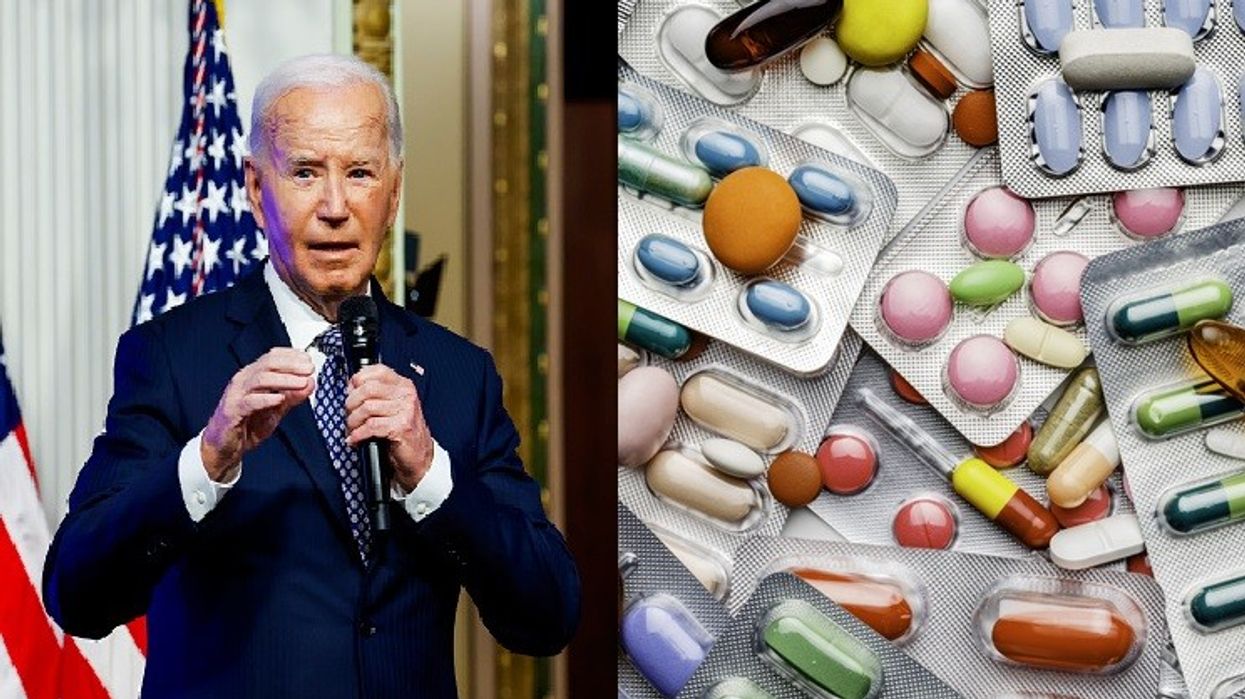People covered by Medicare would also save $1.5 billion in out-of-pocket costs for prescription medicines in 2026
The US government on Thursday (15 August) announced that it had negotiated price reductions of up to 79 per cent for ten top-selling prescription drugs in its Medicare health programme, ending months of unprecedented discussions with drug manufacturers.
Medicare is a health insurance programme for Americans age 65 or older, as well as those with certain disabilities and End-Stage Renal Disease (permanent kidney failure requiring dialysis or a kidney transplant). The programme serves 66 million people.
The new pricing, negotiated through provisions of the Inflation Reduction Act, will go into effect in 2026 and is expected to save the U.S. government $6 billion (£4.6 billion) in the first year alone.
A key legislative achievement of President Joe Biden, Inflation Reduction Act was signed into law in 2022, allowing Medicare to negotiate prices for some of the most expensive drugs covered by the programme for the first time.
Upon securing Medicare's drug price cuts, President Joe Biden said: "We showed that major progress can be made for the American people when we work together to take on special interests, even as Big Pharma continues to go to court to try to block lower prices for consumers."
"But the Vice President and I are not backing down. We will continue the fight to make sure all Americans can pay less for prescription drugs and to give more breathing room for American families."
Vice President Kamala Harris commented: "Today's announcement will be lifechanging for so many of our loved ones across the nation, and we are not stopping here."
She added that additional prescription drugs will be selected each year as part of the Medicare drug price negotiation programme.
Merck & Co's diabetes drug Januvia will see the steepest percentage price cut at 79 per cent, while Novo Nordisk’s insulin aspart products will experience the second-largest cut at 76 per cent.
The other eight drugs on the list will see price reductions ranging from 68 per cent to 38 per cent.
The drugs selected for price negotiations include:
- Eliquis – A blood thinner from Bristol Myers Squibb and Pfizer that cost Medicare $16.5 billion between May 2022 and June 2023. It faces a 56 per cent price cut.
- Jardiance – A drug from Boehringer Ingelheim and Eli Lilly used to treat type-2 diabetes, heart failure, and chronic kidney disease. It cost Medicare $7 billion in the same period, making it the second most expensive drug.
- Xarelto – An Eliquis rival, this blood thinner from Johnson & Johnson cost Medicare more than $6 billion between June 2022 and May 2023. It will see a 62 per cent price cut.
- Januvia – This diabetes drug from Merck & Co was prescribed to patients with Medicare coverage at a gross cost of $4.1 billion in the year ending June 2023.
- Farxiga – A diabetes drug from AstraZeneca, also used to treat adults with heart failure and chronic kidney disease. It cost Medicare $3.3 billion for the 12 months ending June 2023. It had its list price cut by 68 per cent.
- Entresto – Novartis’ heart failure drug Entresto cost the Medicare agency $2.9 billion in the same period.
- Enbrel – A drug made by Amgen used to treat a range of autoimmune conditions, including rheumatoid arthritis and psoriasis. It cost Medicare $2.8 billion between May 2022 and June 2023.
- Imbruvica – AbbVie and Johnson & Johnson’s leukemia treatment cost the federal health plan $2.7 billion to treat 20,000 people in those 12 months. It will face the least steep percentage cut of 38 per cent.
- Stelara – The blockbuster biologic Stelara from Johnson & Johnson, used to treat autoimmune conditions such as Crohn’s disease, came at a gross cost of $2.6 billion to Medicare in that period. It faces a price cut of 66 per cent.
- NovoLog, Fiasp – These Novo Nordisk’s insulin aspart products were also included in the negotiations, having cost $2.6 billion to treat more than 750,000 people in the 12 months ending June 2023.
The Inflation Reduction Act also capped insulin out-of-pocket spending at $35 for a month's supply of each insulin product covered by Medicare.
The Biden administration said people covered by Medicare would also save $1.5 billion in out-of-pocket costs for prescription medicines in 2026.
With inputs from Reuters













